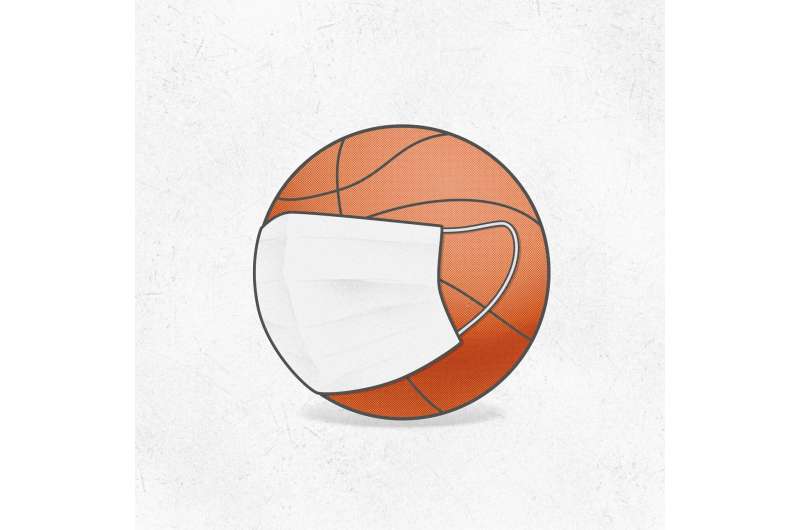When COVID-19 benches athletes: Lessons for the rest of us

This week, two Chicago Bulls games were postponed because of a COVID-19 outbreak on the team, while several football teams had to bench players who tested positive for the coronavirus.
Michael Lin, MD, MPH, an infectious disease specialist and associate professor at Rush University Medical Center, offers some insights on the recent outbreaks among professional athletes and some lessons for the rest of us to avoid infection.
Close contact indoors can spread the virus
Several factors can contribute to COVID-19 outbreaks in sports, including the environment in which they are played, Lin says.
"One of the benefits of playing sports is the team aspect, but indoor sports do increase the likelihood of being in close contact with someone and potentially transmitting the virus that causes COVID-19," he says.
The heavy breathing and yelling associated with many sports can also increase the risk of transmitting respiratory viruses, particularly in poorly ventilated rooms and gyms.
Off the court or field, social factors can contribute to outbreaks on teams. "There are a lot of activities outside of the field of play, particularly in the locker room or during pre- and post-match socialization, that can lead to infection and transmission as well," he says.
Most breakthrough infections mild, but boosters needed
Vaccine-related factors can also contribute to COVID-19 outbreaks among athletes, as is the case in the general population, Lin says.
"Vaccines are not 100% effective, so we do expect some breakthrough infections. But in general, these are mild, and vaccines do an excellent job of preventing severe infections and death," Lin says.
He also says the effectiveness of the vaccines varies based on the type of vaccine. "After a lot of data has been collected, it appears the Johnson & Johnson vaccine is still very effective against severe illness and death from COVID-19, but it may be less effective compared with other vaccines that are mRNA-based," he says. The two mRNA-based COVID-19 vaccines are made by Pfizer-BioNTech and Moderna.
Another issue is that the effectiveness of the COVID-19 vaccines wanes over time. To reduce the risk of breakthrough infections, the Centers for Disease Control and Prevention recommends getting a booster six months after the Pfizer-BioNTech or Moderna two-shot vaccine series or two months after the Johnson & Johnson single-dose vaccine.
Bench yourself if you are sick
If you have COVID-19 symptoms like a cough, fever or runny nose, Lin recommends taking yourself out of the game—and staying home from work or school.
He also recommends wearing masks and social distancing—two options that aren't available to professional athletes on the court or field, he says.
Lin also wants the public to be aware of the potential risks associated with holiday get-togethers and other social events, even if they are vaccinated.
"Any gathering has some inherent risk, so people have to decide what kind of risk is acceptable to them," he says. If you are able to obtain a COVID-19 test prior to a social event, it can add a layer of safety for you and everyone else who is present, he adds.



















